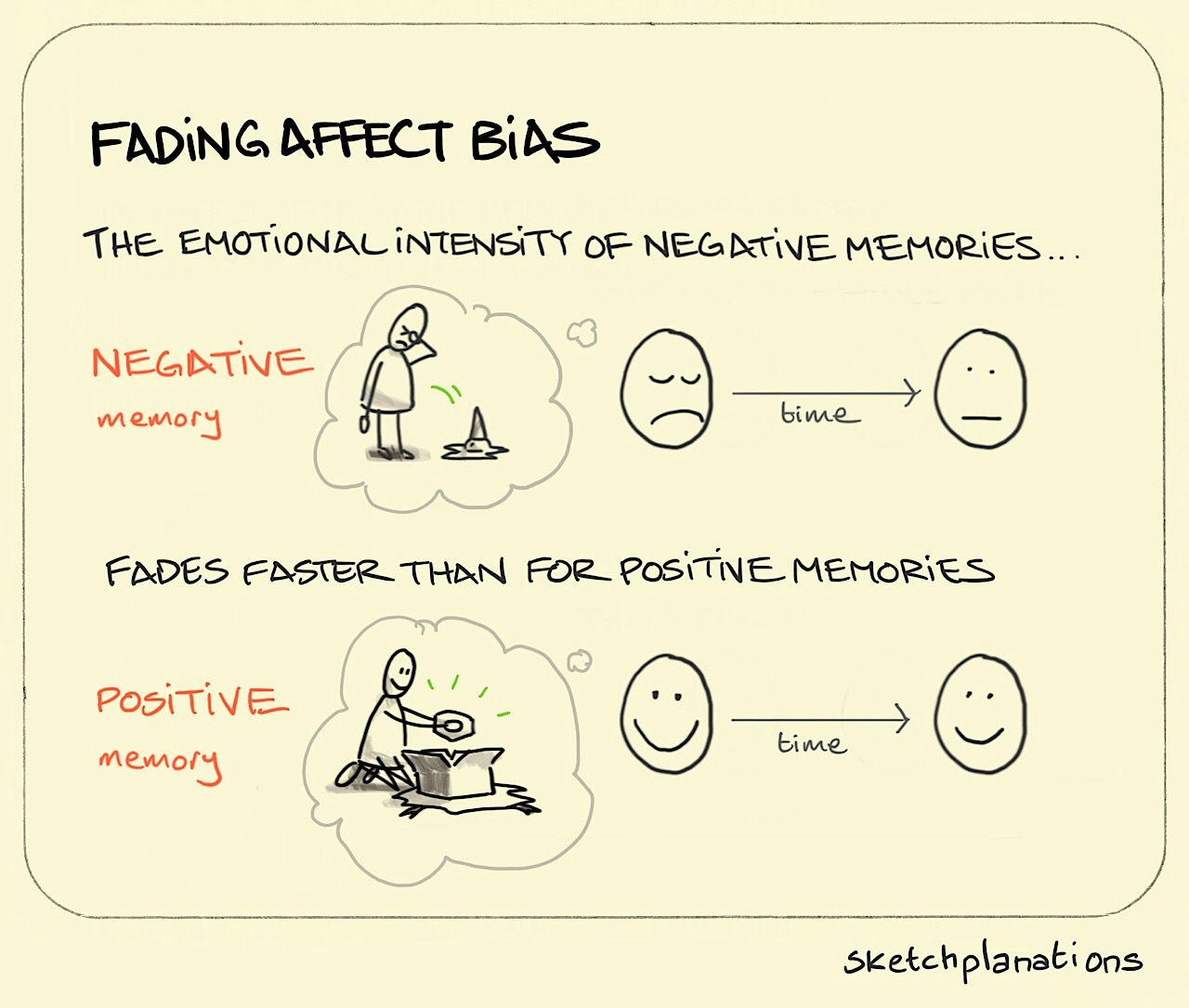Fading affect bias

- Download
- Copied!
👇 Get new sketches each week
Fading affect bias is the name given to the fact that the intensity of emotion, or the affect, of our bad memories seems to fade faster than for our good memories.
This means that, say, our happy memories keep us happier for longer, and our bad memories don’t affect us as much in the future. It’s called the fading affect bias, as the fading is biased more strongly for negative memories.
This is handy as it naturally gives us a more positive disposition. So, for instance, after some time has passed, we may find we remember the good parts of a holiday — like an amazing beach — more clearly than the bad — like the mosquitoes at the beach. And thinking about the good parts keeps making us happy longer than thinking about the bad parts might make us sad. Brilliant!
This is a different use of affect than the common affect/effect confusion.

